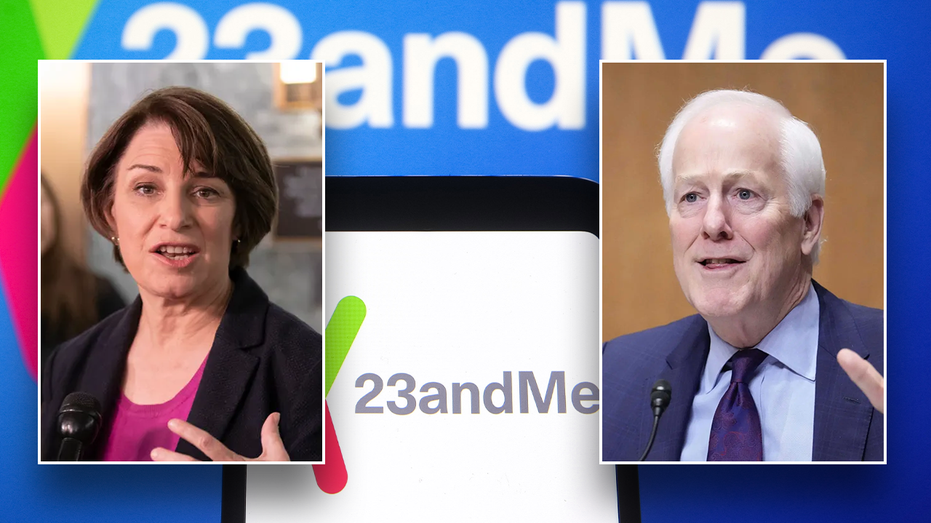With the narrow 215-214 passage of House Republicans’ "Big, Beautiful Bill," (BBB) there were noted winners and losers, and some entities who felt mixed results from the midnight-oil-burning negotiations and vote.
The House Freedom Caucus (HFC) within the GOP conference appeared to be a key player in BBB talks, as Chairman Andy Harris of Maryland voted "present" while two other HFC members – Reps. Warren Davidson of Ohio and Thomas Massie of Kentucky voted "nay."
The HFC was initially very concerned about the bill’s spending levels and how quickly – or not – some of the reduction measures would be implemented.
Ultimately, the HFC won out in terms of shifting Medicaid Work Requirements in the bill to take effect by 2027 rather than the originally-proposed 2029 deadline.
MIKE JOHNSON, DONALD TRUMP GET BIG BEAUTIFUL WIN AS BUDGET BILL PASSES HOUSE
On the other GOP flank, moderates and lawmakers from blue states had expressed concern over the State and Local Tax Deduction (SALT) – which helps Democrat-run state residents lessen their tax burden.
Originally, SALT was capped at $10,000, but the budget bill raised it to $30,000 for individuals earning up to $400,000.
Rep. Michael Lawler, R-N.Y., and other blue-state Republicans clashed with President Donald Trump on the matter – with the president retorting that he knew Lawler’s Rockland County district better than he did.
Lawler was seen as a winner in the budget bill’s passage, as his work – along with Long Island Republicans like Rep. Nick LaLota, secured the deduction for their constituents.
Another blue state Republican, Rep. Andrew Garbarino of New York, was one of two nonvoting members – the other being Rep. David Schweikert, R-Ariz., according to the official roll.
Residents of such high-tax states as New York, New Jersey, Illinois, Maryland and California won out in that respect, ensuring that they would be able to continue to utilize SALT.
Outright winners in the bill were Trump and House Speaker Mike Johnson, R-La., -- who saw some version of their original effort come to pass.
Trump also saw his sweeping middle- and upper-class tax cuts preserved from expiration, which in turn rendered debt-and-deficit hawks proverbial losers.
ADAM SCHIFF TELLS EPA'S LEE ZELDIN HE'LL CAUSE CANCER AFTER SHOUTFEST
Passage of the bill in the House comes as the national debt currently sits at $36,214,475,432,210.84, according to Fox Business' National Debt Tracker. The federal deficit will grow by about $2 trillion over 10 years, according to reports, while the tax cuts’ preservation will reduce gross federal revenue.
But Medicaid and SNAP work requirements funding cuts are expected to lessen that blow.
Other winners included illegal immigration hawks, with the bill allocating billions for the Pentagon and for homeland security, including at the U.S.-Mexico border.
Energy interests also won out in the bill’s passage.
The American Petroleum Institute applauded the House for taking another step to "restore American energy dominance."
"By preserving competitive tax policies, beginning to reverse the ‘methane fee,’ opening lease sales and advancing important progress on permitting, this historic legislation is a win for our nation’s energy future," the group said in a statement.
CLICK HERE TO GET THE FOX NEWS APP
Losers included Democratic leadership, as House Minority Leader Hakeem Jeffries, D-N.Y., saw his caucus vote as a bloc, but with just shy of the partisan force necessary to block the bill.
One particularly upset "loser" in the bill’s passage was House Homeland Security Committee ranking member Bennie Thompson of Mississippi.
"You can’t shovel s—t and call it sugar," Thompson fumed in a Thursday statement.
"This horrific bill is one of the most shameful grifts I have ever seen played on the American public," he added.
Abortion providers also lost out via the bill, as it reportedly bans Medicaid disbursements to Planned Parenthood for one year, which could lead to decreased revenue for such organizations.
Opponents of SALT, including members of the HFC also essentially lost out, given the fact the deduction remained intact and was somewhat bolstered.
The bill’s slashing of green energy tax credits also renders that particular corporate sector – including wind, solar and EV concerns – another potential loser in the BBB.
.png)
 4 hours ago
1
4 hours ago
1














 English (US)
English (US)